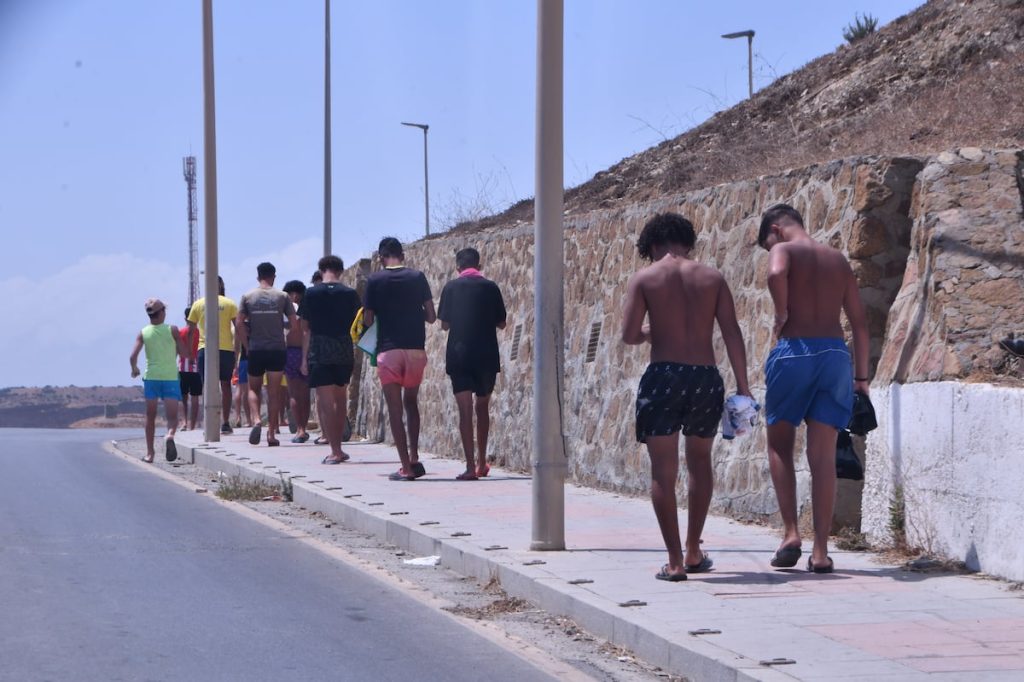In recent days, the arrival of dozens of migrant minors in Ceuta has overwhelmed the city’s reception resources. With over 400 children and adolescents housed in centers and in an industrial warehouse, the president of the autonomous city, Juan Jesús Vivas, requested assistance from the government on Thursday. In a letter addressed to the autonomous communities and various ministries, Vivas urged for an immediate solution to transfer these children and adolescents to the mainland in a prompt and binding manner. The Minister for Youth and Childhood, Sira Rego, has reached out to Vivas offering support to expedite the agreed upon transfers from Ceuta, which amount to 87.
The transfers referred to by the minister were approved at the last sectorial conference on Childhood held in Tenerife on July 10th. At that meeting with the autonomous communities, 347 minors were approved for relocation, with 87 set to leave Ceuta and the remainder from the Canary Islands, under the voluntary distribution mechanism in place since 2022. This was a minimal agreement, as the government aimed to gauge the communities’ stance on changing the Immigration Law to make distribution mandatory, with the support of Ceuta and the Canary Islands. However, the proposal was rejected by the PP, Junts, and Vox, preventing its consideration in Congress.
The minister emphasizes in her letter that the migration issue cannot be managed with temporary solutions and reminds Vivas of the failure of the mandatory distribution proposal, which faced opposition from several parliamentary groups, including the main opposition party, the Popular Party. The government remains committed to implementing agile, effective, and sustainable responses, but requires support from Vivas and his partners. Ceuta is currently hosting 406 minors, nearing the record high of 470 young migrants in 2019. The number of arrivals this year has increased sixfold compared to 2023.
Ceuta’s government is struggling to cope with the situation and highlights that the city is accommodating five unaccompanied minors for every 1,000 residents, while the national average is less than 0.001 per 1,000. Child welfare authorities have been opening new centers as the number of minors in care grows, culminating in the use of an old warehouse in the industrial area of Tarajal. This area, close to the border, previously housed minors following a mass influx of 10,000 people in May 2021 under dire conditions. The warehouse has been repurposed, but remains a closed facility without windows facing the exterior.
The challenges faced by Ceuta in accommodating the growing number of migrant minors highlight the need for a comprehensive and coordinated response at the national level. While the government has put forward proposals for mandatory distribution of minors, political opposition has hindered progress in this regard. The current situation underscores the importance of collaborative efforts to address the needs of migrant children and adolescents in a timely and effective manner, ensuring their well-being and protection as they navigate the complexities of migration.


